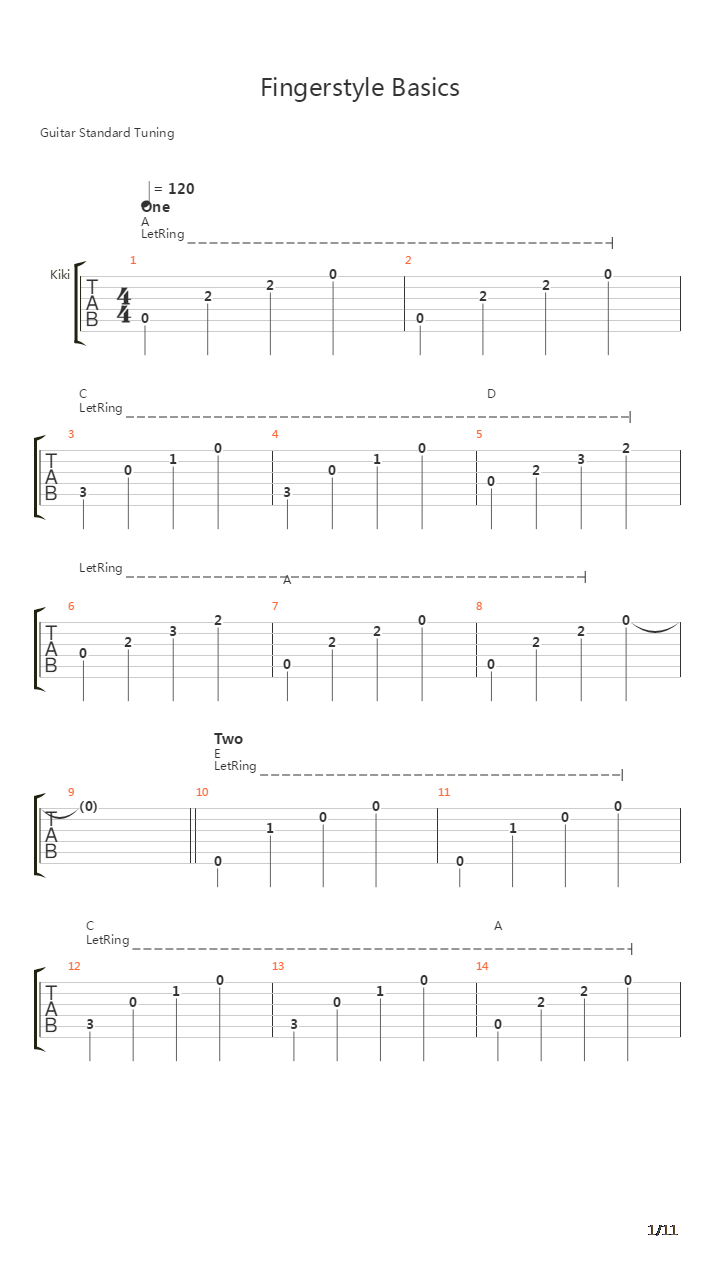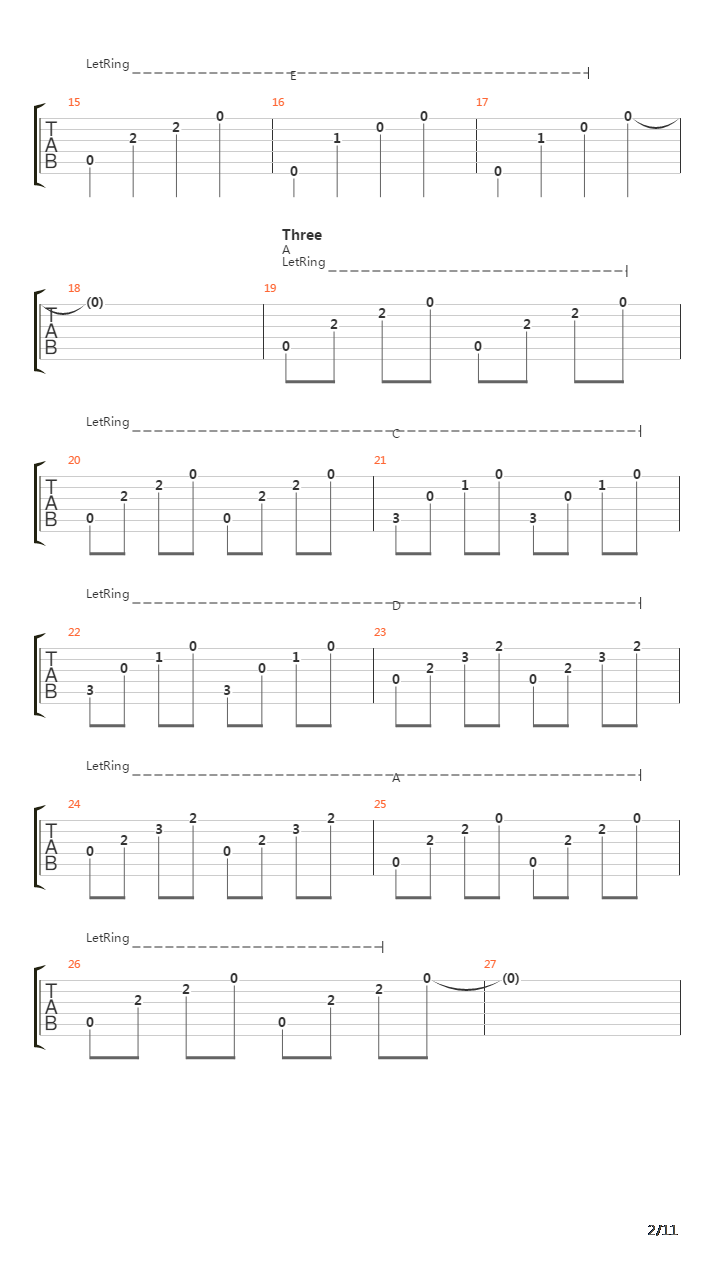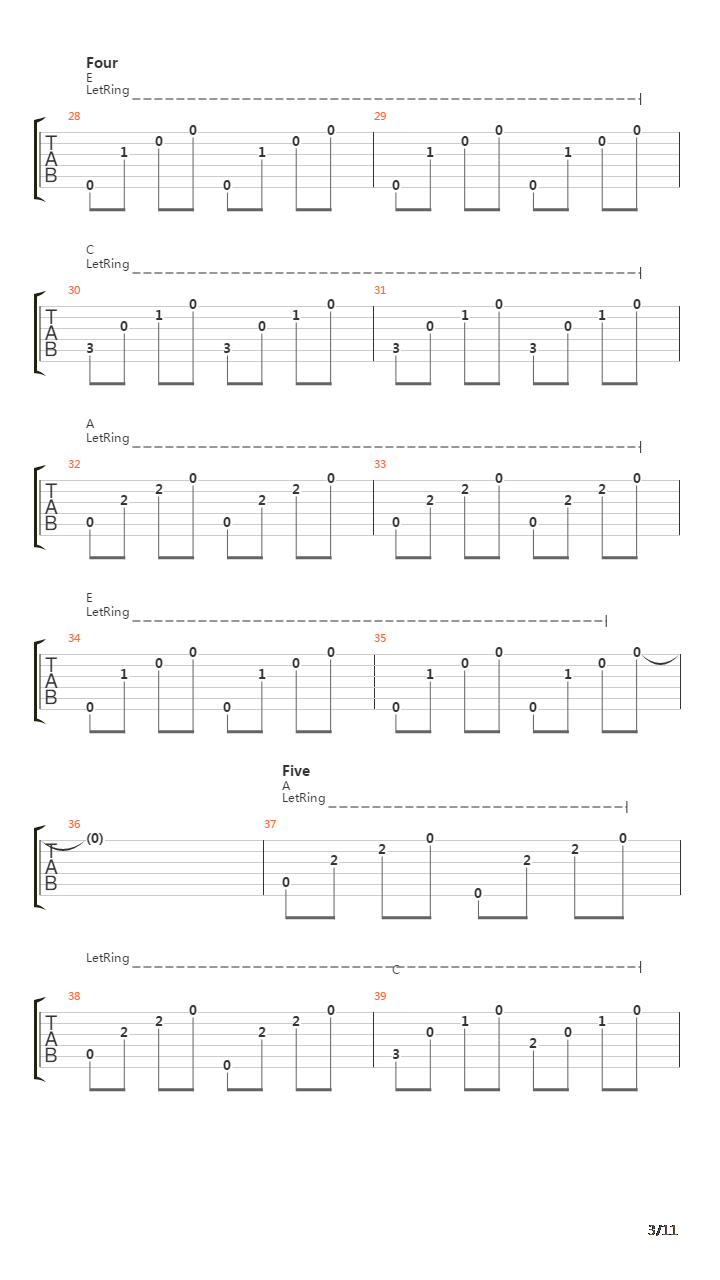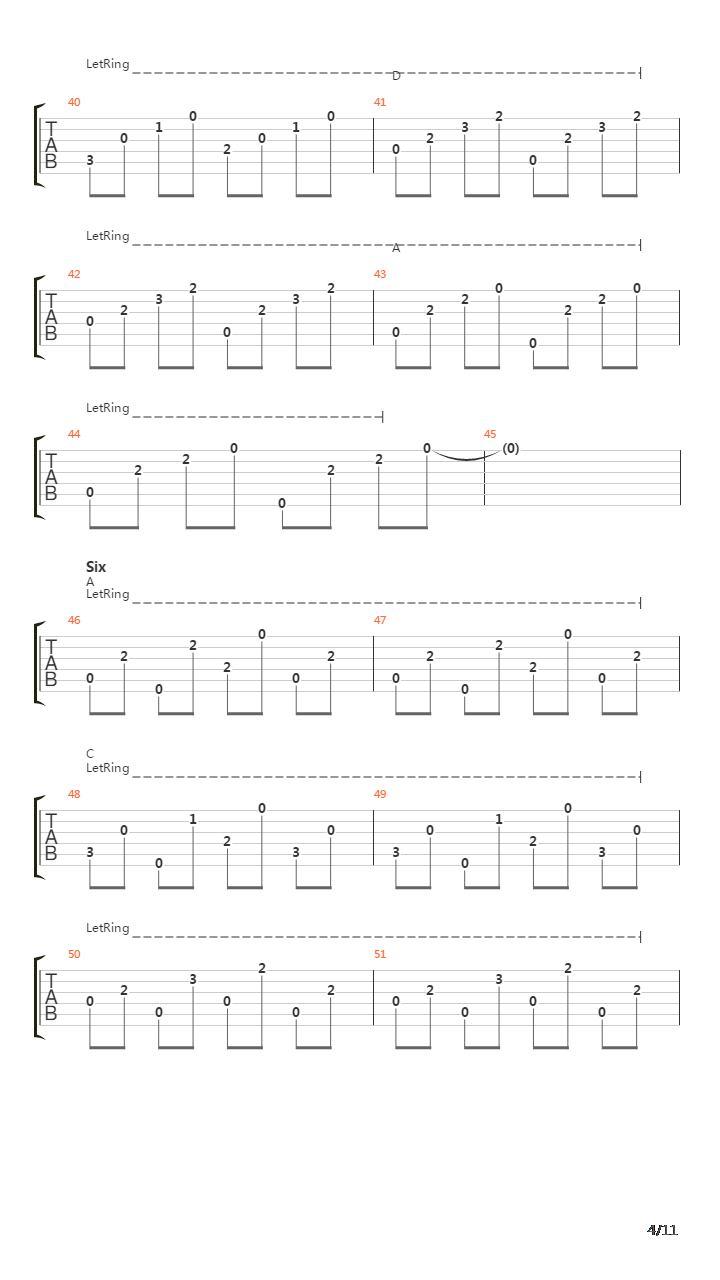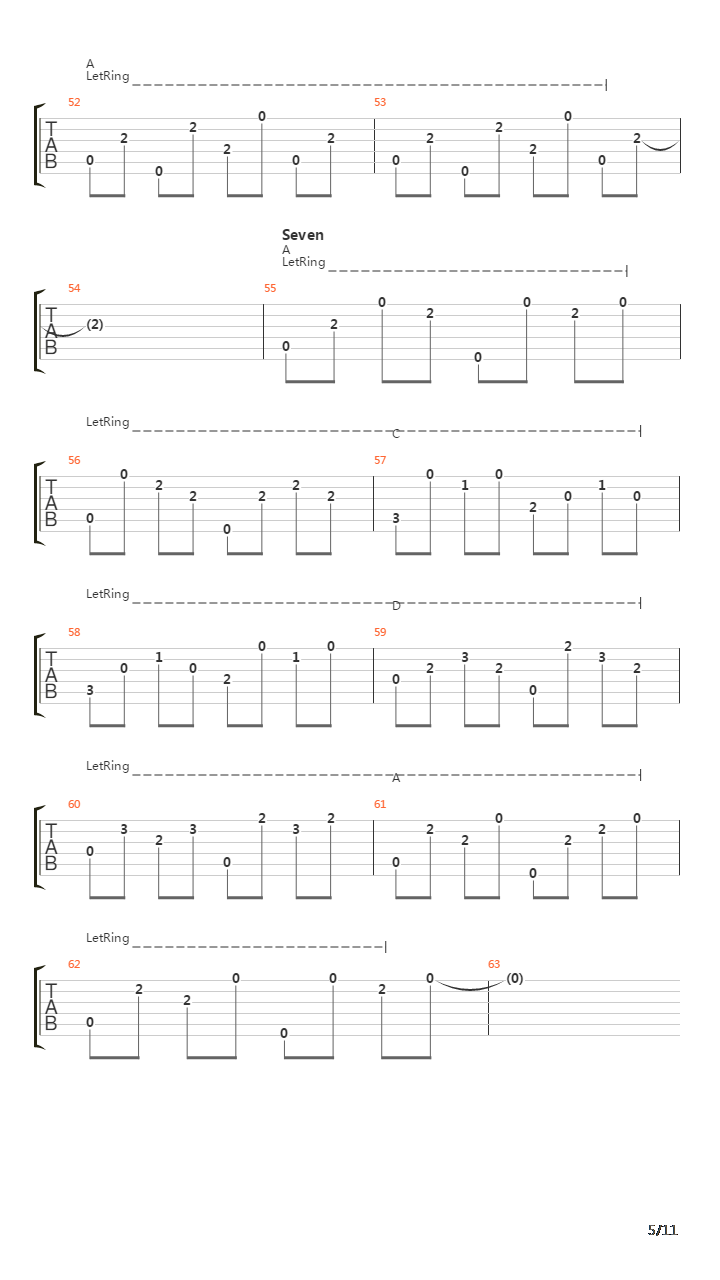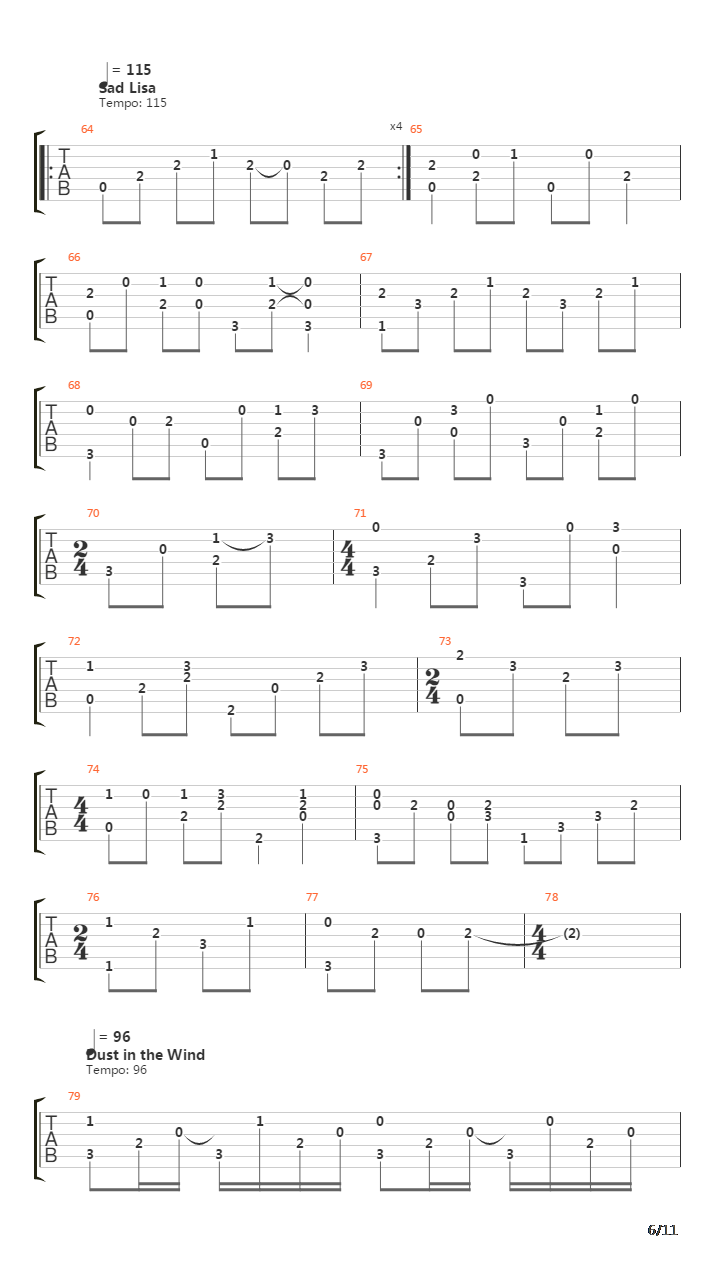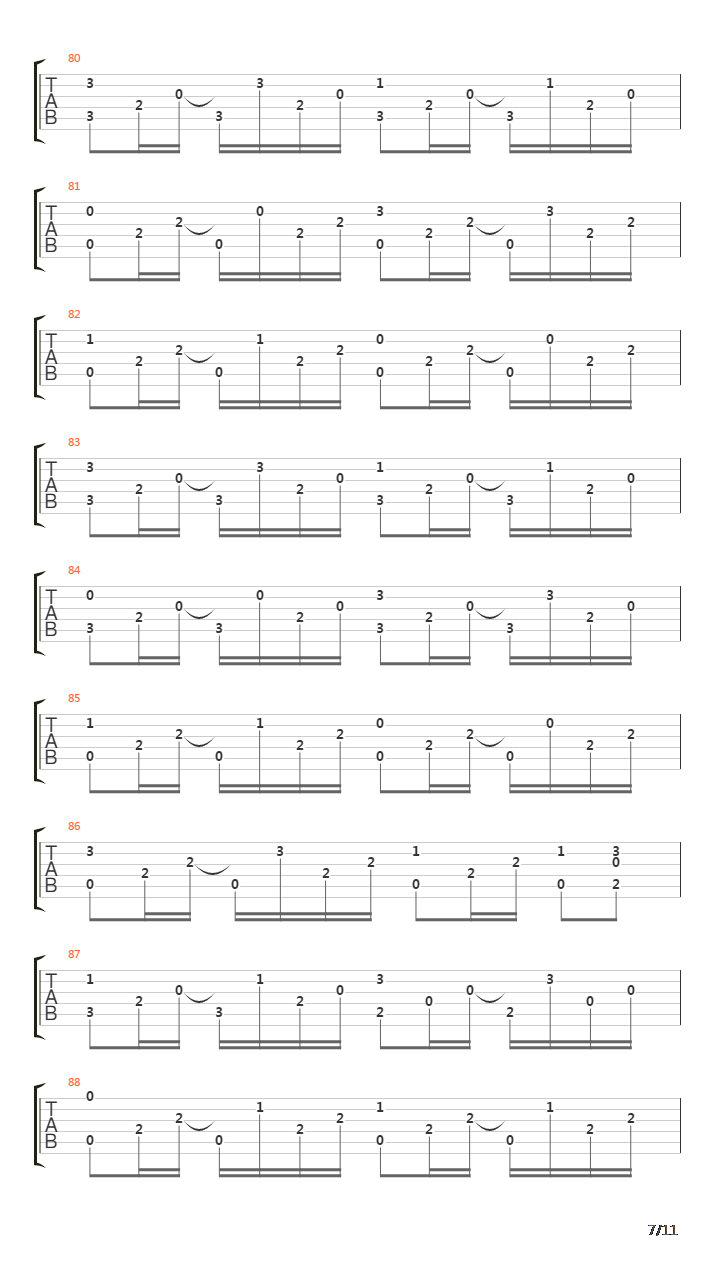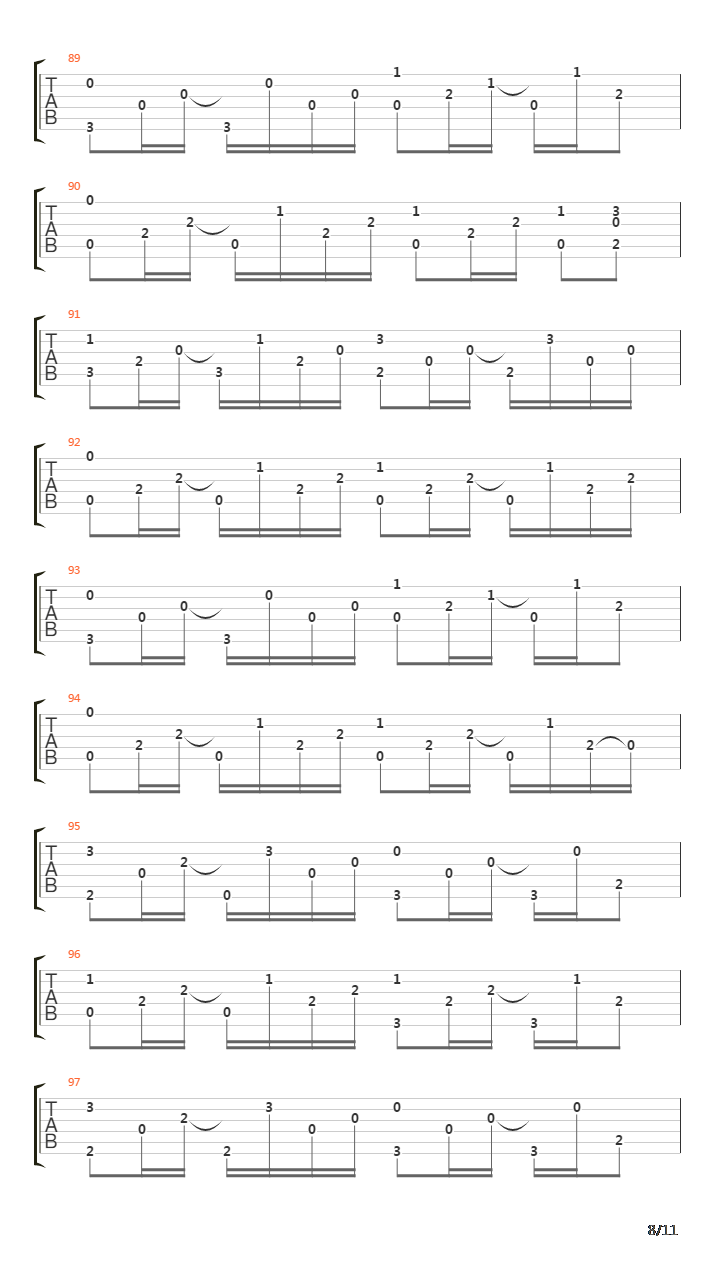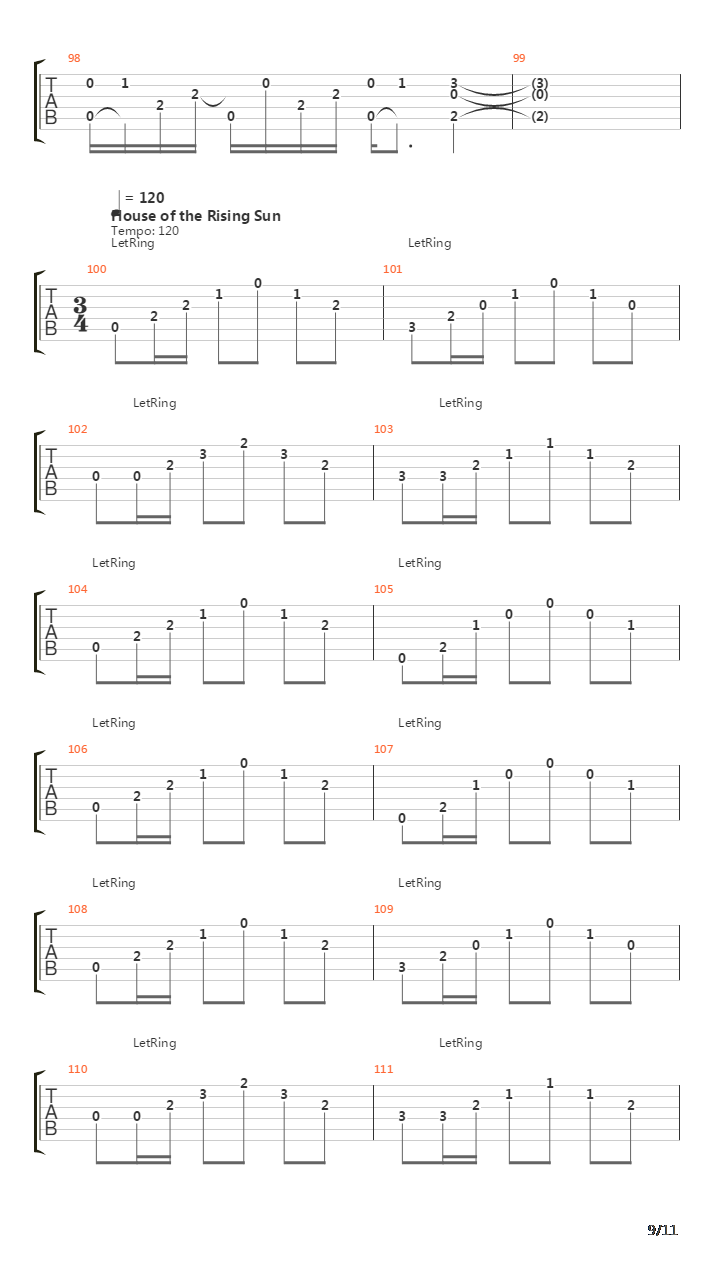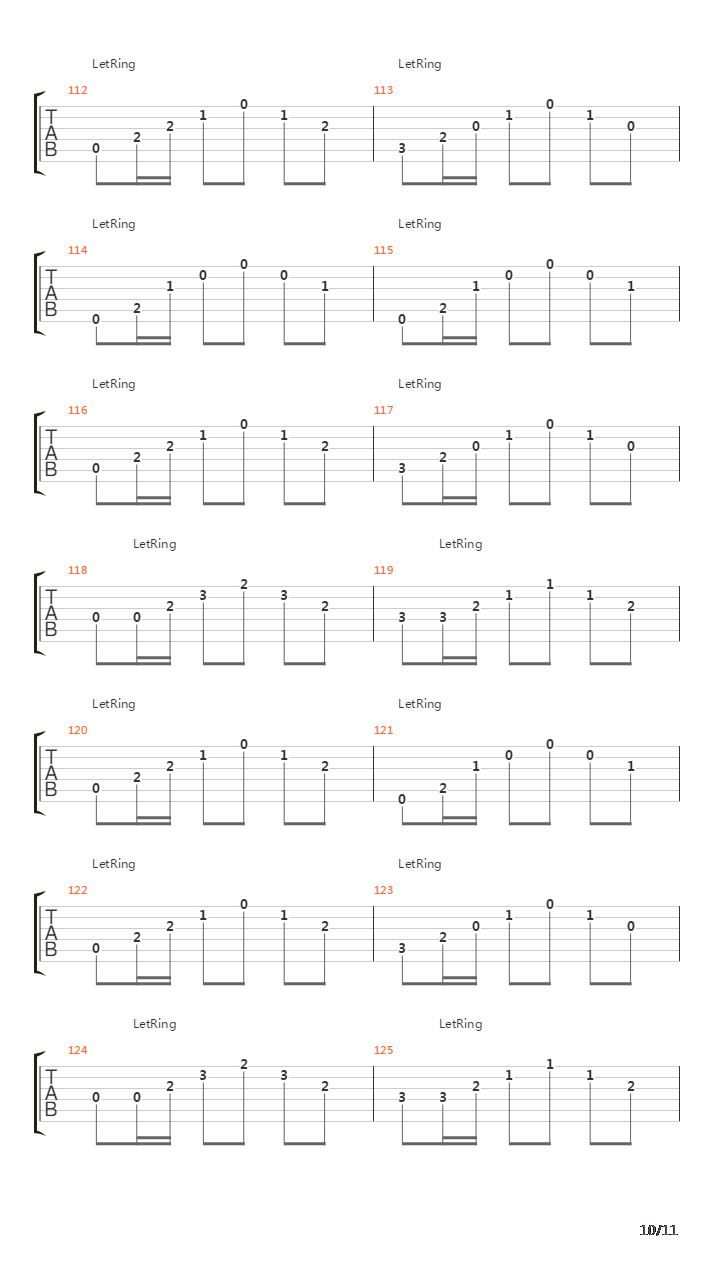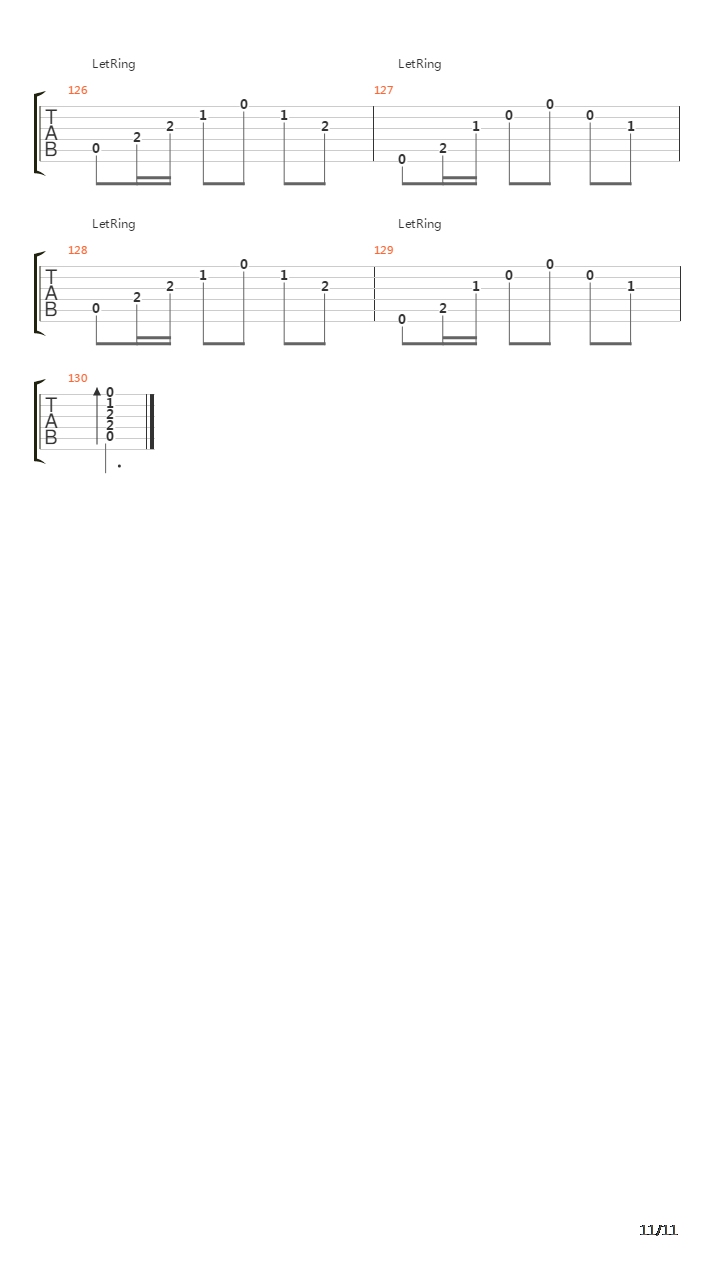附注:
This is to get you guitar young 'uns started on playing in
the thoroughly rewarding and musically stimulating
universe of (you guessed it) fingerstyle.
Your right hand can be in one of two positions.
"Hovering" over the strings, or "anchored." Place your
little finger near the pick guard and/or bridge. This is
your "anchor" point, which you can move around as
you play. You don't need to use an anchor all the
time, especially if you don't feel comfortable. Do NOT
flatten the palm of your hand or curve your fingers too
much when playing. How much you curve your wrist is
a matter of personal taste. Again, anchors are
OPTIONAL.
In fingerstyle, you play arpeggios ("broken" chords) one
note at a time (sometimes more than one note, as you
can see in the song examples). You play the 6th, 5th,
and 4th strings with the thumb, the 3rd with the index,
the 2nd with the middle, and the 1st with the ring finger.
I suggested right hand fingering throughout the tab.
"T" is thumb (also known as "pulgar"), "I" is the index,
"M" is the middle, and "A" is the ring (also known as
"anular"). The little finger isn't used much in fingerstyle.
Remember "PIMA," or "TIMA."
In "Three" and "Four" I used the same chord
progressions that "One" and "Two" use, but with
eighth notes. "Five" introduces alternate bass notes.
With alternate bass notes, you can make a passage
sound more interesting; the bass notes being the ones
on the 4th, 5th, and 6th strings. "Six" deals with
patterns containing something commonly known as
"Travis picking." That is, you play a bass note, then a
note with your fingers, then a bass note, and so on.
"Seven" contains different picking patterns over the
same chords in "Five." There are many different
picking techniques. By mixing notes on a chord, a
passage can sound more melodic than just picking
straight up or down.
I included some fingerpicking songs to practice with
which you can find in MSB. Many thanks to the
talented tabber which provided us with the "Sad Lisa"
tab, and I had absolutely nothing to do with it. This tab
was NOT MADE BY ME. I merely added right hand
fingering suggestions to make it easier if you're still
green, but I suggest you try playing it properly once you
reach a certain level.
Note: The "House of the Rising Sun" tab WAS tabbed
by me, by the way.
Cat Stevens' "Sad Lisa" is one of my favorites. And
maybe you recognize the next one? "Dust in the
Wind?" Does it ring any bells? That one I got out of
Guitar World magazine. I didn't include right hand
fingerings in that one because I feel that the proper way
to play it is best. Also because I don't feel like it. "The
House of the Rising Sun" is a song that you'll probably
have learned to play if you've ever taken guitar lessons.
In fact, you should play this song properly too.
As I said before, there's a whole universe of finger
picking, and you should really get a book dedicated
entirely to it. But while you scrape up the dough for it,
why not absorb everything in this tab and what's on
MSB. I know of one resident fingerstyle composer on
MSB, and that's our very own blackiel, if you're
interested in listening to original fingerpicking songs.
Also, check out "Fingerstyle for Classical Guitar," a tab
by aerguin, also on MSB of course.
Remember to change fingerpicking patterns constantly,
and try to play smoothly. What I do is that I play a
piece as fast as I can until I start to make mistakes.
Good luck on your finger picking future.